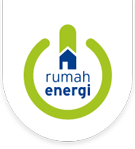YRE and PHR Collaboration for a Just Energy Transition through Activation of Biogas-Based Independent Energy Villages in Kampar and Pekanbaru
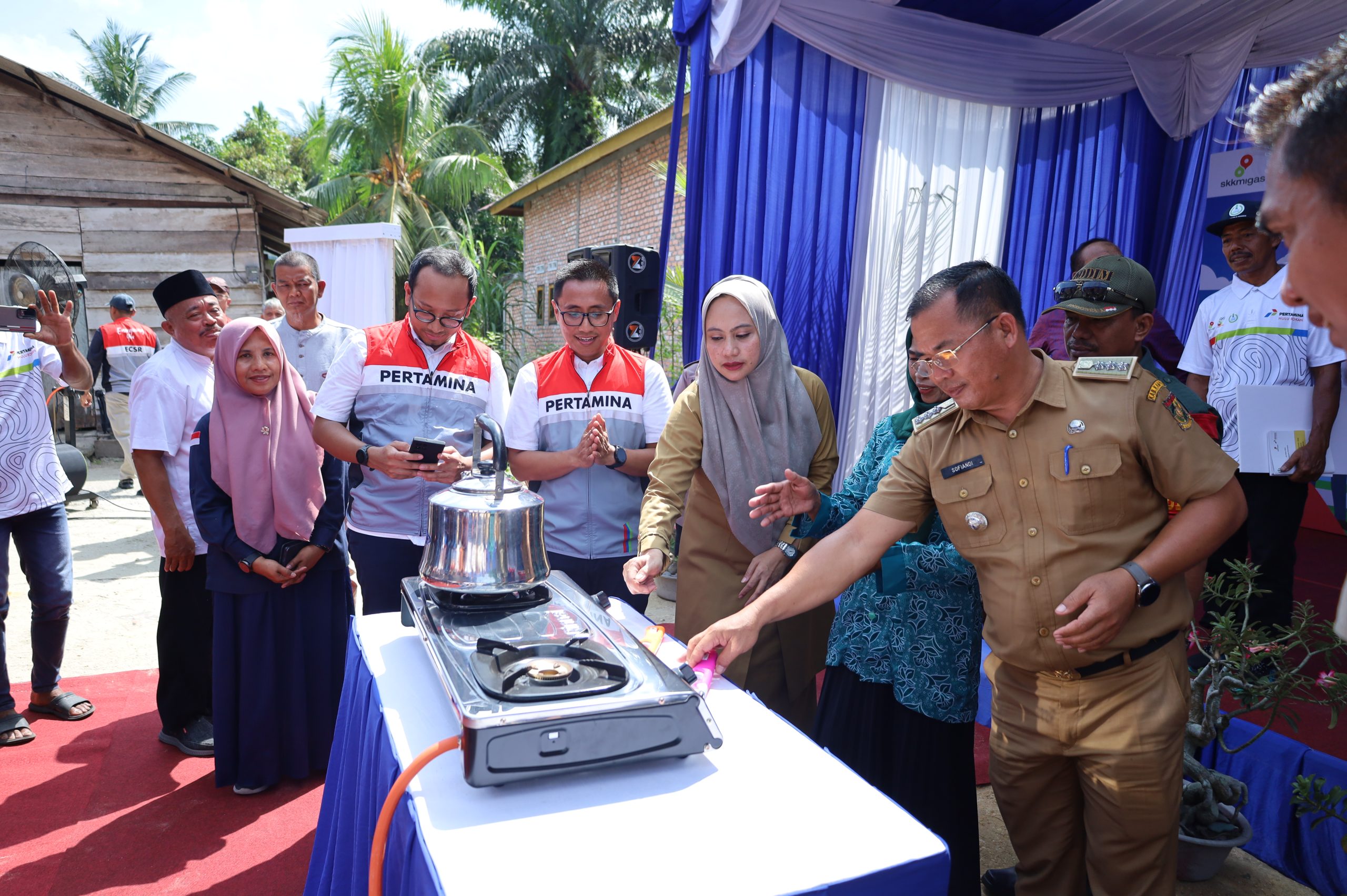
Pekanbaru – Monday (10/6) Yayasan Rumah Energi (YRE) and Pertamina Hulu Rokan (PHR) WK Rokan held a Biogas-Based Energy Independent Village (DEB) Activation activity in Mukti Sari Village, Tapung District, Kampar Regency, Pekanbaru.
This activation activity is an effort to socialize the Biogas Based DEB program to the community and stakeholders and demonstrate how to use biogas renewable energy technology and bio-slurry (biogas dregs) as biogas derivative product. This activity also attended by representatives from the Riau Province ESDM Service, representatives from the Kampar Regency Plantation, Livestock and Animal Health Service, representatives from Pahlawan Tuanku Tambusai University, Mukti Sari Village officials, Muspika Tapung District, SKK Migas Representatives from Sumbagut and local community leaders.
The Head of Mukti Sari Village, Mr. Waryono, started his speech by expressing his thanks for the biogas development for the Muktisari village community. He explained that the impact of biogas is not only felt by the benefits of the gas as a daily cooking necessity but the use of bio-slurry in Liquid Organic Fertilizer (POC) can also be marketed outside Pekanbaru.
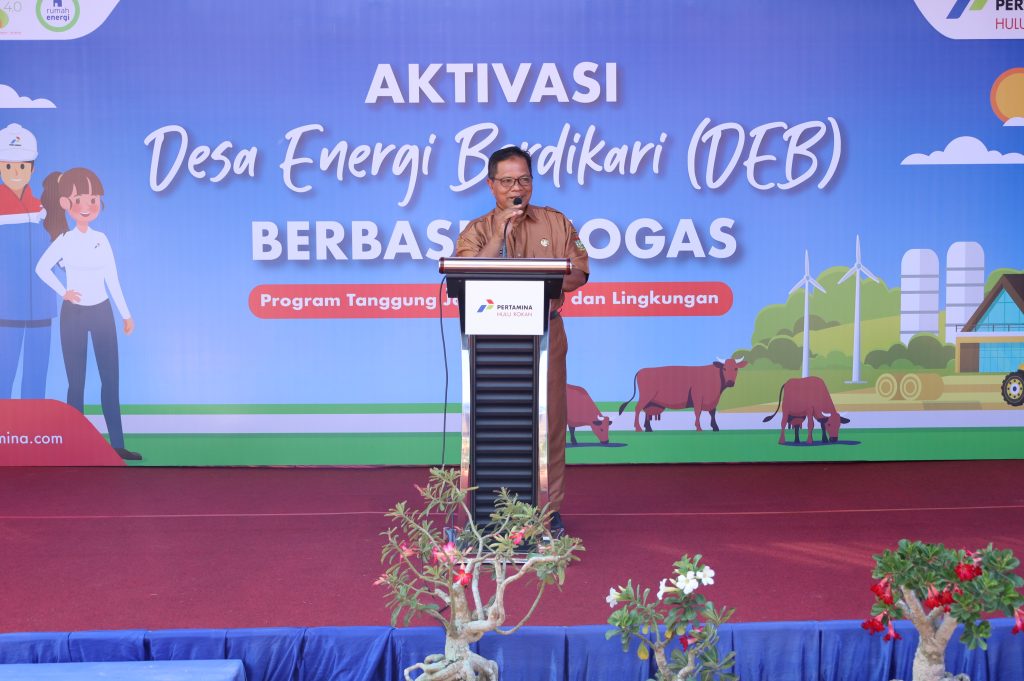
“Marketing is already underway, even this POC has been used by oil palm farmers in Minas, Siak Regency. This POC has also been sent to West Java, used by rice farmers and according to information, the harvest has increased from 4 tons to 6 tons after using POC products from biogas owner group,” he said.
PHR CSR Manager WK Rokan Pinto Budi Bowo Laksono explained that PHR as one of the pillars supporting national energy seeks to support community independence through Social and Environmental Responsibility (TJSL) programs. He said that DEB is Pertamina’s thematic program which is tailored to the potential that exists in each region. In the Kampar area, which is PHR’s work area, there are lots of cattle so their dung can be used for biogas.
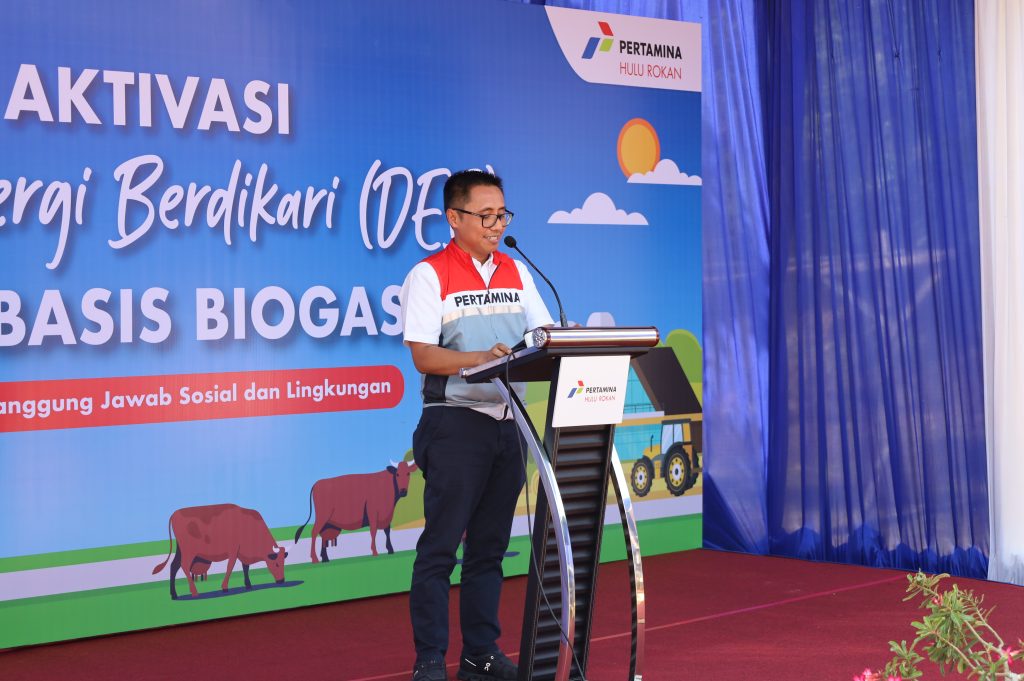
“DEB is one of the TJSL programs of the environmental and economic pillars of Pertamina Persero and Pertamina Hulu Energi (PHE), which is an upstream sub-holding which was later also adopted by PHR WK Rokan and has been implemented by PHE throughout Indonesia. One of them is in the region Rokan’s work utilizes renewable energy such as solar, water, wind, and biogas to reduce carbon emissions, accelerate the energy transition for society, and support the government’s target of achieving Net Zero Emissions by 2060,” he said.
Furthermore, participants and guests who attended were also invited to visit the biogas beneficiaries guided by YRE Home Biogas Program Manager Krisna Wijaya. He explained in detail the components of biogas and how to use them. A visit was also made to the vegetable garden demonstration plot belonging to Mr Darman, one of the program beneficiaries. Participants and guests also had the opportunity to visit a booth that exhibited products produced from biogas output such as POC Prima Bio-slurry and Prima Bio-slurry Solid, vegetables and fruit fertilized using bio-slurry, and MSME snack products which are processed by the Srikandi group which uses biogas to cook food products.
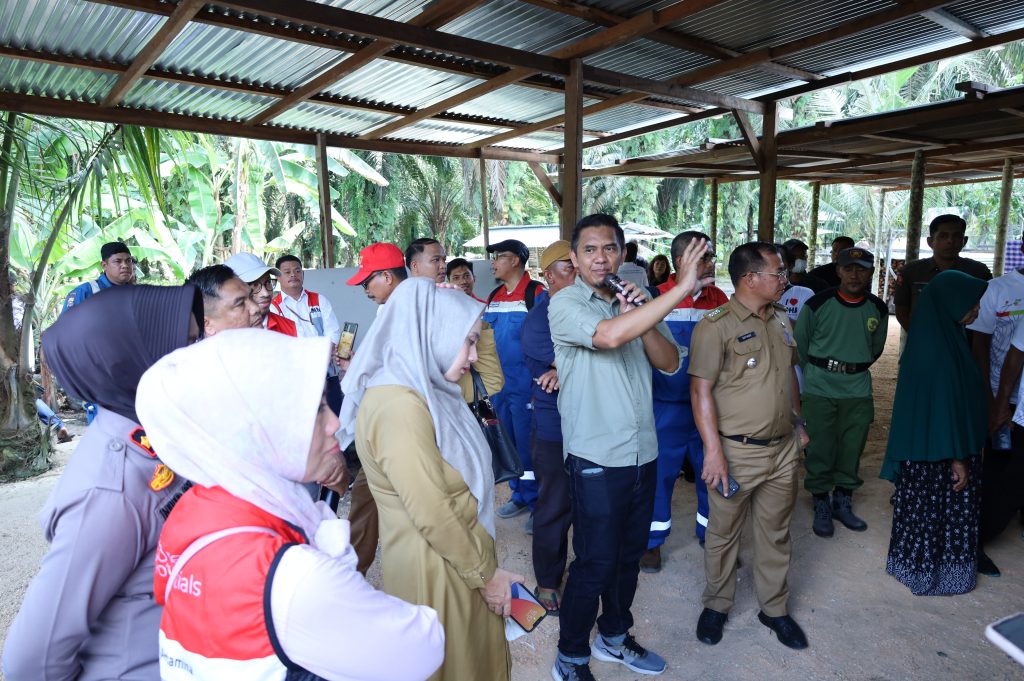
Overall, the Biogas Based DEB program has built biogas installations for 22 families in Mukti Sari Village, Tapung District, Kampar Regency, and 1 family in Maharani Village, West Rumbai District, Pekan Baru City. There are 150 direct beneficiaries of this program and 21 indirect beneficiaries from buyers and users of Solid Organic Fertilizer (POP) and POC. This program also built 12 home demonstration plot units and 2 integrated demonstration plots used for biogas derivative products, namely POP and POC. Meanwhile, the resulting emission reduction reached 56.8 tons of CO2E per year from organic waste management of 319.4 tons.
The implementation of the Biogas-Based DEB program is a concrete manifestation of a Just Energy Transition in local communities. Community involvement in access to renewable energy is not only about economic savings and environmental cleanliness, but moreover how the spirit of realizing a Just Energy Transition can start from the community at the site level. In this way, the discourse on a Just Energy Transition is not only an issue and discussion in the policy setting but also something that can be implemented by society.
